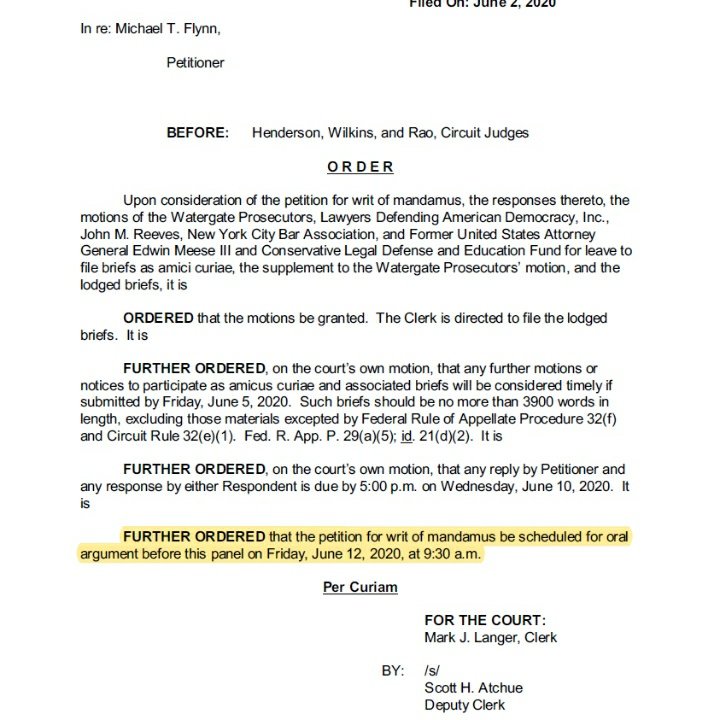D2J Thread
August 26, 2020
Here are D.C. Court of Appeals Judge Srinivasan's own direct written words regarding a prosecutor's decision to bring or not bring criminal charges in the decision of U.S. v. Fokker,
818 F.3d 733 (D.C. Cir. 2016):
"The Executive's primacy in criminal charges is long settled. That authority stems from the Constitution's delegation of 'take care' duties, U.S. Const. art II, section 3, and the pardon power."
"the strength of the case, the prosecution's general deterence value, the govt's enforcement priorities and the case's relationship to the govt's overall enforcement plan."
After Judge Srinivasan's detailed description of prosecutorial discretion, he then stated:
"By contrast, the Judiciary, as the Supreme Court has explained, generally is 'NOT COMPETENT TO UNDERTAKE" that sort of inquiry."
Dementia???
"[D]ecisions to dismiss pending criminal charges and to identify which charges to bring--LIE SQUARELY WITHIN THE KEN OF PROSECUTORIAL DISCRETION"
"So understood, the 'leave of court' authority gives NO POWER to a district court judge to deny a prosecutor's Rule 48(a) motion to dismiss charges based on a disagreement with the prosecution's exercise of charging authority."
"For instance, a court cannot deny leave of court because of a view that the defendant should stand trial notwithstanding the prosecution's desire to dismiss the charges. . ."
"The authority to make such determinations [to bring/not bring/dismiss charges] REMAINS WITH THE EXECUTIVE."
June 24, 2020 decision:
"In its motion, the gov't explains that in light of newly discovered evidence of misconduct by the FBI, the prosecution can no longer prove beyond a reasonable doubt that any false statements. . ."




